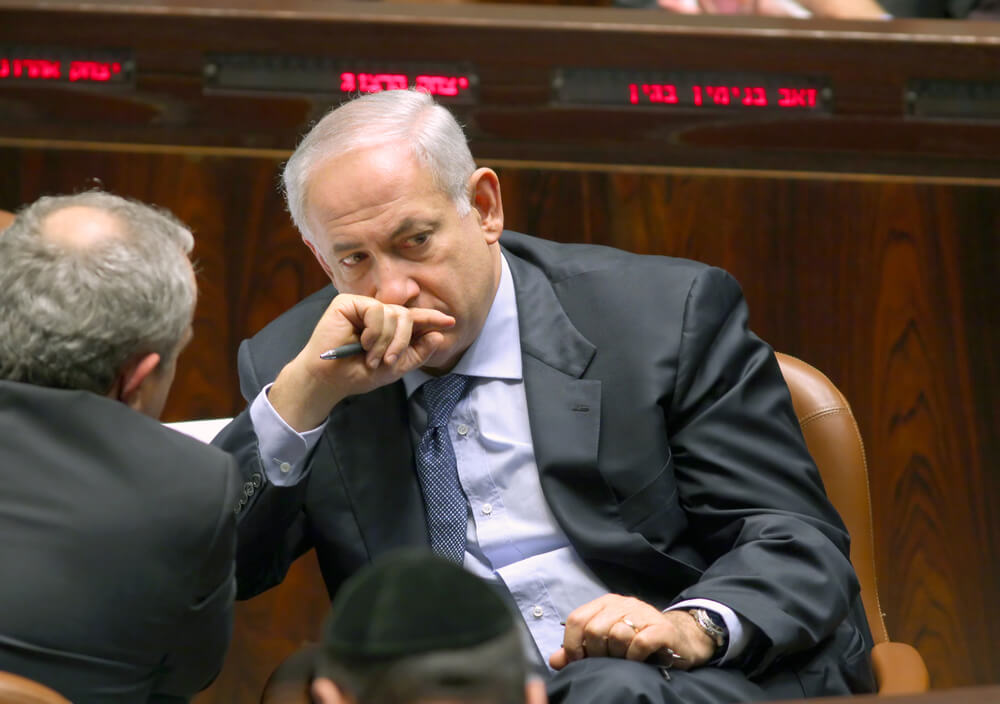A year ago, "spill over" of the conflict was the most feared word, second only to the fate of the 251 hostages kidnapped by Hamas in southern Israel and taken to Gaza.
Everyone, starting with the people of Israel, the Palestinians, their neighbours in the region, and others around the world, feared the spill over of the conflict.
A year after Hamas's terrorist attack on southern Israel, it is clear that fears of a spill over of conflict across the region were well-founded, while numerous attempts to prevent it have failed.
One year later, Israel is fighting on seven fronts—in Gaza, Lebanon, and the West Bank—against militants from Syria, Yemen, Iraq, and finally directly against Iran.
However, the number of fronts on which Israel's fate and reputation are at stake surpasses the seven on which it engages in direct military conflicts. This also encompasses the internal obstacles Israeli democracy has been confronting.
Confidence in government policy is increasing
In recent months, the shock and indignation that swept through Israel on October 7 of last year toward the entire defence system have largely subsided.
The decimation of Hamas' fighting capacity in Gaza, the assassination of Hamas leader Ismail Haniyeh in Tehran last July, and especially the decimation of almost the entire leadership of Hezbollah, including the long-time leader Hassan Nasrallah, have restored Israeli confidence in their military and intelligence structures, traditional pillars of state survival.
The approval rating of Prime Minister Benyamin Netanyahu is increasing
As a direct consequence, the approval rating of Prime Minister Benyamin Netanyahu is increasing. At the end of September, he had close to 40% of support, more than any potential competitor for the position of PM, except former Prime Minister Naftali Bennett.
An overview of further Israeli positioning on all fronts reveals an even more significant increase in support for the Netanyahu government's handling of the war.
Following the decimation of Hezbollah's military resources and leadership, support for the government's handling of the war increased by almost 10%, reaching nearly 45%. However, a majority of Israelis, approximately 53%, still believe that the government is handling the war badly.
Oscillations in relations with the US
The prospects for the pacification of the region look much worse than a year ago, when Israel began military action in Gaza against Hamas. None of the numerous negotiation lines, despite their initiatives, have made significant progress towards the goal, a fact that particularly frustrates Israel's allies in the West, primarily the US.
Last June, US President Joe Biden accused PM Netanyahu of "prolonging the war in Gaza for his own political self-preservation." This was one of the low, even threatening points in US-Israeli relations over the past year, which has seen many oscillations.
Can Israel count on the unconditional support of the USA even after a year of conflict?
PM Netanyahu, his government, and supporters are certainly happy about the active participation of the US Navy in shooting down Iranian missiles fired at Israel on October 1. However, this allied gesture, which provides support for the defence of Israeli territory and population, has not consistently characterised US relations with Israel over the past year.
In addition to the seven "hot" conflicts in its immediate surroundings, Israel's relations with the USA are also one of significant "fronts" for shaping Israel's future position in the region and the world. Can Israel count on the unconditional support of the USA even after a year of conflict?
“Netanyahu and his far-right coalition partners have zero intention of doing anything to satisfy the United States’ hopes that the Gaza disaster will occasion a moral reckoning leading to Palestinian non-Hamas governance in Gaza and then a Palestinian state in Gaza and the West Bank. On the contrary, they have done everything possible to make a Palestinian state impossible,” said Professor Dana Allin from the International Institute for Strategic Studies.
All the potentials of Israel on the test
Israel's European allies, following the main course of relations with Israel set by the US, also represent a special "front," on which Israel will have to make an effort to preserve its position as the first partner in the Middle East.
Its actions in the last year have sparked a massive wave of anti-Israel protests and public outrage in Europe, often escalating into open anti-Semitism.
 Israel is entering a phase that tests not only its formidable military capabilities but also its political and diplomatic resources - Benjamin Netanyahu
Israel is entering a phase that tests not only its formidable military capabilities but also its political and diplomatic resources - Benjamin Netanyahu
European governments, faced with internal political turbulence, have often been unprepared for the outpourings of anti-Israel sentiment, leaving space for the growth of Islamic extremism.
Some of the more powerful governments in Europe, such as the Spanish government, directly opposed Israeli policy by joining South Africa in the genocide case before the International Court of Justice last June.
Even after a year, the moral defence of military actions against extremists in the region will remain one of Israel's most important and complex challenges. The International Criminal Court not only has an active case against Israel for the genocide in Gaza, but also brought an indictment for war crimes against Benjamin Netanyahu and his defence minister Yoav Gallant last May.
A year has passed since Hamas' terrorist attacks and the conflict's spill over into the region, where it clashes with various pro-Iranian proxies. Israel is now entering a phase that tests not only its formidable military capabilities but also its political and diplomatic resources.
Given the tensions in relations with their closest allies in the West, they have already reached the point of overstretching, but they will become even more strained when the situation calms down and diplomacy takes precedence over military force.